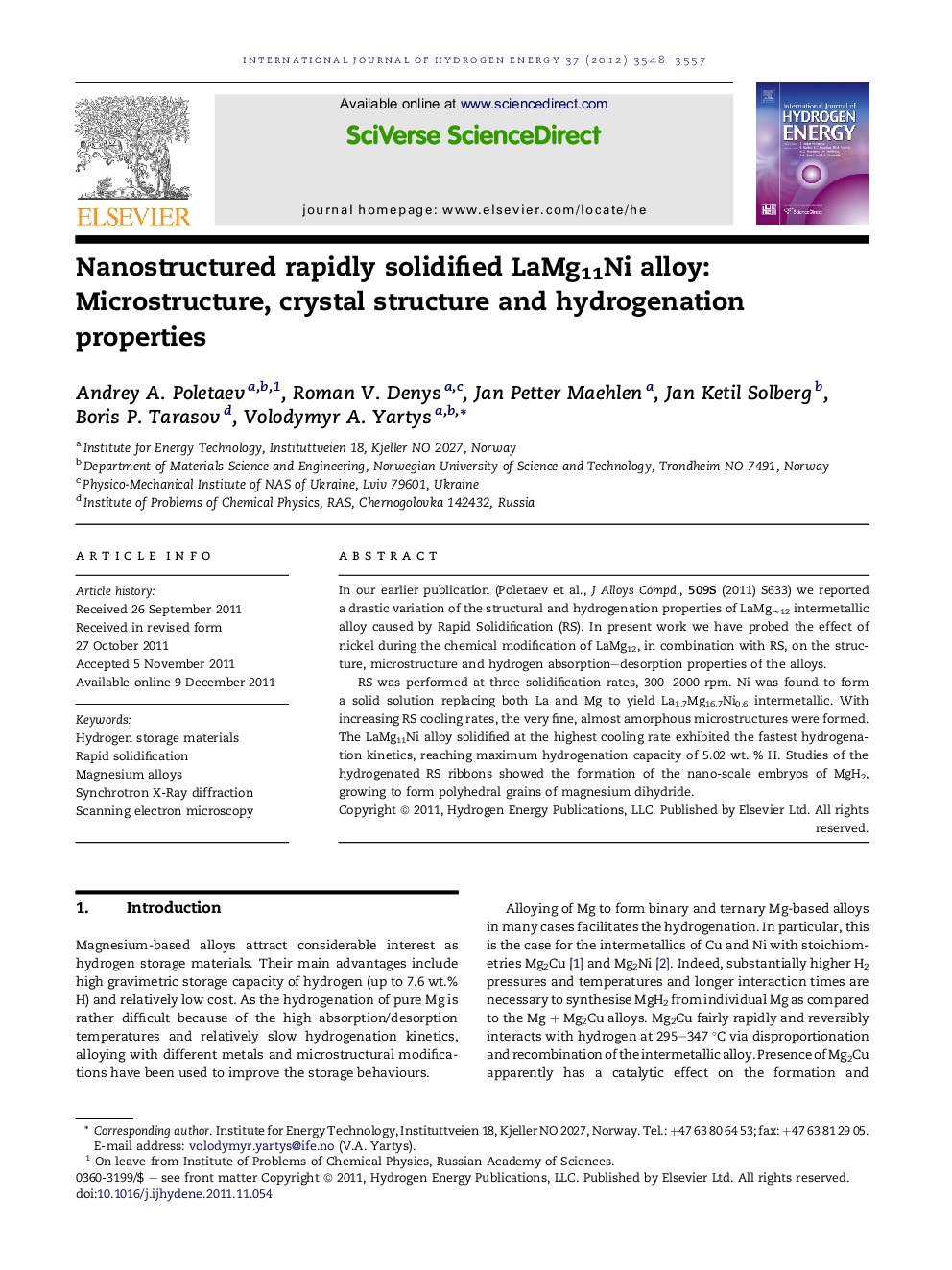| کد مقاله | کد نشریه | سال انتشار | مقاله انگلیسی | نسخه تمام متن |
|---|---|---|---|---|
| 1282362 | 1497565 | 2012 | 10 صفحه PDF | دانلود رایگان |

In our earlier publication (Poletaev et al., J Alloys Compd., 509S (2011) S633) we reported a drastic variation of the structural and hydrogenation properties of LaMg∼12 intermetallic alloy caused by Rapid Solidification (RS). In present work we have probed the effect of nickel during the chemical modification of LaMg12, in combination with RS, on the structure, microstructure and hydrogen absorption–desorption properties of the alloys.RS was performed at three solidification rates, 300–2000 rpm. Ni was found to form a solid solution replacing both La and Mg to yield La1.7Mg16.7Ni0.6 intermetallic. With increasing RS cooling rates, the very fine, almost amorphous microstructures were formed. The LaMg11Ni alloy solidified at the highest cooling rate exhibited the fastest hydrogenation kinetics, reaching maximum hydrogenation capacity of 5.02 wt. % H. Studies of the hydrogenated RS ribbons showed the formation of the nano-scale embryos of MgH2, growing to form polyhedral grains of magnesium dihydride.
Figure optionsDownload as PowerPoint slideHighlights
► RS results in a structural disorder developing with increasing solidification rate.
► In La2Mg17 Ni partially substitutes both La and Mg to form La1.7Mg16.7Ni0.6.
► Higher quenching rates result in better hydrogen absorption–desorption kinetics.
► Formation of the nano-scale embryos of MgH2 in the hydrogenated RS ribbons.
Journal: International Journal of Hydrogen Energy - Volume 37, Issue 4, February 2012, Pages 3548–3557